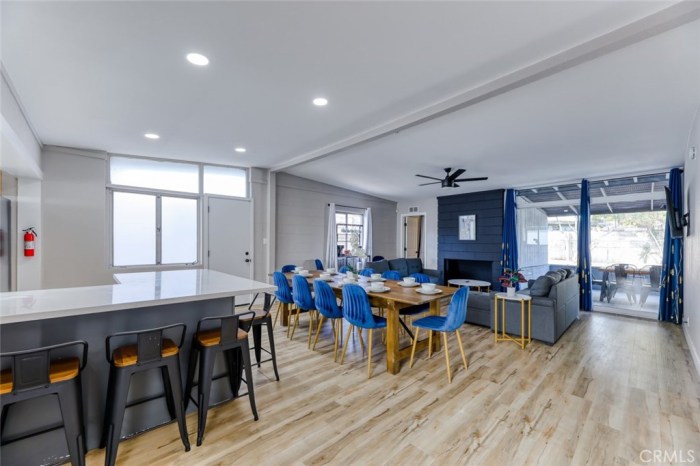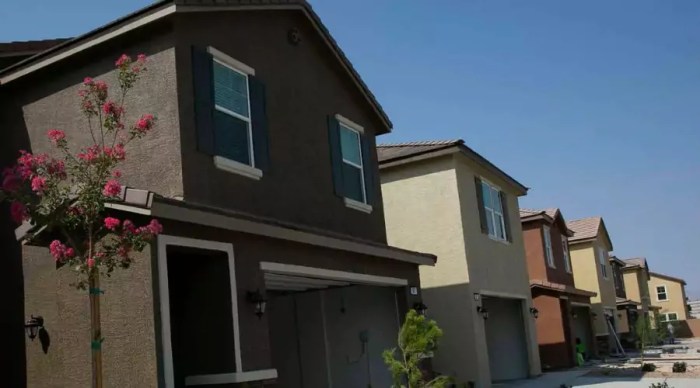Rent To Own Houses in Las Vegas
Rent-to-Own Houses in Las Vegas: A Comprehensive Guide: Rent To Own Houses In Las Vegas
Rent to own houses in las vegas – The Las Vegas real estate market, known for its dynamism and fluctuating trends, presents a unique landscape for those seeking homeownership through rent-to-own arrangements. This guide delves into the intricacies of the Las Vegas rent-to-own market, providing a comprehensive overview of its current state, financial implications, legal considerations, neighborhood analysis, and strategies for finding and evaluating suitable properties.
Las Vegas Rent-to-Own Market Overview

Source: amazonaws.com
The Las Vegas rent-to-own market reflects the broader housing market trends, experiencing periods of high demand and increased competition, particularly during periods of economic stability and population growth. Key demographics include young professionals, first-time homebuyers, and individuals with less-than-perfect credit scores seeking an alternative pathway to homeownership. Compared to traditional home buying, rent-to-own prices may appear initially lower, but the total cost, including rent and eventual purchase price, needs careful consideration.
Typical contract terms include an option fee, a monthly rent that partially covers mortgage payments, and a predetermined purchase price at the end of the lease term. These terms vary significantly depending on the property and the seller.
| Program Name | Monthly Payment | Down Payment | Purchase Option |
|---|---|---|---|
| Example Program A | $2000 | $5000 | $300,000 after 3 years |
| Example Program B | $2500 | $10000 | $350,000 after 5 years |
| Example Program C | $1800 | $0 | $250,000 after 2 years |
| Example Program D | $2200 | $7500 | $320,000 after 4 years |
Financial Aspects of Rent-to-Own in Las Vegas, Rent to own houses in las vegas

Source: amazonaws.com
Rent-to-own offers a potential pathway to homeownership for those who may not qualify for a traditional mortgage, but it carries both advantages and disadvantages. While it allows for building equity and potentially avoiding a large down payment upfront, the total cost can exceed the market value of the property if not carefully negotiated. Financing options may include seller financing, lease-purchase agreements, or a combination of both.
Tax implications are complex and should be discussed with a tax professional, as rent payments are generally not tax-deductible, while portions of monthly payments may be considered interest and principal payments, potentially leading to tax benefits.
A hypothetical budget for a rent-to-own home in Las Vegas might include a monthly rent of $2000, $200 for property maintenance, and an additional $300 for potential repairs. If the purchase price is $300,000 after three years, saving for the down payment and closing costs needs to be factored into the monthly budget.
Legal and Contractual Considerations for Rent-to-Own Agreements
A well-drafted rent-to-own contract is crucial to protect both the buyer and seller. Essential clauses include clear definitions of rent, purchase price, option fee, a detailed description of the property, and provisions for property maintenance and repairs. Common disputes often arise from disagreements regarding property condition, missed payments, or the process of transferring ownership. Buyers should be aware of potential legal pitfalls such as unclear contract terms, inadequate property inspections, and unforeseen repairs.
A checklist of documents to review includes the contract itself, the property appraisal, a home inspection report, and title insurance documents. Transferring ownership involves finalizing the purchase price, securing financing, and completing the deed transfer process.
Neighborhood Analysis: Location and Amenities in Las Vegas

Source: nomadscolumn.com
Las Vegas offers diverse neighborhoods, each with unique characteristics affecting the desirability and value of rent-to-own properties. Factors influencing property value include proximity to schools, employment centers, amenities, and overall neighborhood safety. Consideration should be given to commuting distances and access to essential services. Below is a comparison of three distinct neighborhoods:
- Neighborhood A (e.g., Summerlin):
- Pros: Established community, excellent schools, ample amenities, high property values.
- Cons: Higher cost of living, potentially longer commutes to certain employment centers.
- Neighborhood B (e.g., Henderson):
- Pros: Family-friendly atmosphere, good schools, relatively affordable compared to other areas.
- Cons: May have fewer amenities than more established areas.
- Neighborhood C (e.g., Downtown Las Vegas):
- Pros: Urban living, close proximity to entertainment and employment opportunities.
- Cons: Higher density, potentially less family-friendly environment, potential noise issues.
A geographical distribution of rent-to-own properties would likely show a higher concentration in areas with a mix of affordability and accessibility to employment and amenities, potentially spreading outwards from the city center to surrounding suburbs.
Finding and Evaluating Rent-to-Own Properties in Las Vegas
Finding suitable rent-to-own properties requires a strategic approach. Utilizing online real estate platforms, working with real estate agents specializing in rent-to-own arrangements, and networking within the community can yield promising leads. Evaluating a property involves assessing its condition, comparing its value to similar properties in the area, and considering potential repair costs. A thorough property inspection is essential to identify any structural issues or hidden problems.
Negotiating the terms of a rent-to-own contract requires careful planning, understanding market rates, and clearly articulating your needs and expectations. Potential buyers should ask sellers about the property’s history, any existing liens or encumbrances, and the details of the purchase option.
FAQ Corner
What credit score is typically required for a rent-to-own agreement in Las Vegas?
Credit score requirements vary widely depending on the seller and the specific terms of the agreement. While a high credit score isn’t always mandatory, a good credit history demonstrates financial responsibility and improves your chances of approval.
How long are typical rent-to-own contracts in Las Vegas?
Contract lengths are negotiable and typically range from 2 to 5 years. The duration often depends on the property’s value, the down payment amount, and the buyer’s financial situation.
What happens if I can’t afford the final purchase price at the end of the rent-to-own contract?
The contract should clearly Artikel the consequences of default. Common outcomes include forfeiture of the accumulated rent payments (often treated as rent credit towards the purchase price) and relinquishment of the property to the seller. Consult a legal professional to understand your rights and obligations.
Considering rent-to-own houses in Las Vegas offers a unique path to homeownership, a different approach might be exploring traditional rental options elsewhere. For instance, if you’re open to other locations, you might check out available properties like those listed on this site for houses in Sicklerville, NJ for rent. Ultimately, the best option for you will depend on your individual circumstances and preferences, whether it’s a rent-to-own program in Las Vegas or a standard rental in New Jersey.
Are there tax advantages to rent-to-own agreements in Las Vegas?
Tax implications vary and depend on the specific structure of the agreement. Consult a tax advisor to determine how rent-to-own impacts your tax liability. Some portions of rent payments might be deductible under certain circumstances.




















